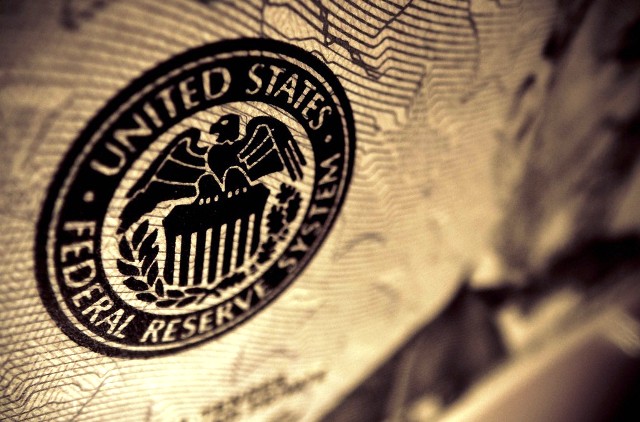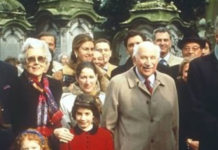
The report of the larceny of more than $50 million out from the Bangladesh Central Bank (from the accounts in New York Federal Reserve) is becoming more and more interesting as days goes by. Three months ago, New York’s Federal Reserve was presumably infiltrated when online criminals (probably from China) took more than $50 million from the current accounts that belonged to the Central Bank of Bangladesh. This money ended up being funneled to the Philippines, where it ended up marketed on the underground market and then piped to the regional casinos. Once the casino laundering was sorted, it was returned to the same underground market where the foreign exchange agent rapidly relocated the money to offshore saving accounts in a matter of days.
The entire event was an embarrassment for the New York Federal Reserve Bank. Simply due to what occurred, somebody in the Philippines asked for a hefty sum of money by using a SWIFT code that was coming from Bangladesh’s foreign exchange reserves. Also, the Federal Reserve gave the green signal without having a hint of what was going on underneath its nose – not having a clue, in both the back end or the middle offices of the Federal Reserve Bank.
According to an article in Reuters, more than two hundred central banks, countries and other establishments have international accounts at the New York Federal Reserve Bank. Those accounts mainly manage the treasuries of the United States, along with the agency debt; and demands for financing arriving, which is then verified by a system called Society for Worldwide Interbank Financial Telecommunication, or more commonly known as the SWIFT that links all banks in that ‘society.’
So, as a result, Bangladesh isn’t going to concur, so that the Federal Reserve isn’t ultimately blame-worthy. Abul Muhith, the Finance Minister of Bangladesh, stated that the country kept the money with the Federal Reserve Bank, and the problems must be with the ones who manage the money there. In reality, Muhith and the Federal Reserve of New York are taking zero accountability for empowering local and worldwide criminal activity, which is specifically what the Federal Reserve really stands out for.
Exactly What Went Wrong?
According to an article in Bloomberg, which states there is everything from gambling enterprises to cash laundering, and finally a strategy to thieve more than half a billion dollars from the Bangladeshi financial institutions. As a matter of fact, the story is forming up to be as one of the largest recorded cases of currency laundering in the Republic of the Philippines.
However, according to a Fellow at Gateway House, Sameer Patil, who focuses on acts of terrorism and federal security, it seems that the online criminals were able to circumvent the Federal Reserve’s security system without anyone noticing it. Also concerning to him, is that while banking institutions carry on to solidify their safety against such risks, hackers, on the other hand, have developed their sport to rupture computers by making use of both technical expertise, along with sneaky components for such money making institutions.
Once Upon A Time…
This robbery, which is something out of a Hollywood movie, begins in Bangladesh, a country that was once a part of Pakistan and is now home to more than 150 million people, found themselves with documented international reserves compliment of a minimum pay motivated trade increase. However, a few of those reserves ended up being kept in an account at the Federal Reserve Bank located within the United States. Abul Maal Abdul Muhith recently implicated that it is the Federal Reserve’s problems that resulted in the unwanted relocation of more than half a billion dollars from a Bangladeshi account. The Central Bank of Bangladesh claimed that the money was taken out by online criminals. Hence, some of it was then tracked to the Philippines.
Furthermore, a Bangladeshi banking official, who is involved in the hacking investigation, mentioned that a simple exchange of $8.7 billion was clogged by the Federal Reserve, something that the Federal Reserve would not discuss. The Federal Reserve will not explain why the billion dollars was discharged. Fundamentally, the dispute is regarding if the Federal Reserve Bank of New York drove through the proper process when it obtained the transfer requests.
The Federal Reserve says they were correct in following the procedures and the protocols required to transact money. According to Bloomberg one of the Federal Reserve officials stated that the guidelines to help make the payments from the Bangladesh’s account used the correct process and were qualified via the SWIFT regulations process. They further stated their systems did not show any symptoms of a potential hack. Therefore the antagonistic party on the opposite side of the SWIFT society – which wasn’t who the Federal Reserve considered a problem – should have learned that the money was not going to the Philippines government, but rather to a few big casinos in that country. While on the other side, the country who’s money was sent to the casinos, is infuriated.
A Bangladeshi executive stated that the Federal Reserve should have verified the transaction with the Bangladeshi financial institution to confirm a genuine transaction, even on the grounds of using the correct SWIFT code. According to the Bangladeshi officials, legal action will be taken against the Federal Reserve Bank of New York.
How Did It All Come Into Light?
As the story unfolds about the specifics of the SWIFT transfer, it remains that the attackers transgressed Bangladesh banking techniques and swiped its login details for transactions. However, the bank officials stated that the hackers then attacked the Federal Reserve with more than a dozen demands to move the funds in question from the Bangladeshi Bank’s account to the businesses in the Philippines and the casinos.
Quadruple demands were made to relocate almost $80 million to the Philippines, which successfully got cleared. However, because of a mistake in spelling, a quarter of a million dollars didn’t make it to a Sri Lankan NGO (Shalika Foundation – which by the way, does not exist.) So, what did they misspell? The word ‘foundation’ in the NGO’s name, which then prompted Deutsche Bank, through which the routing was being done, to search for a confirmation from the Central Bank in Bangladesh, allowing the transaction to be halted.
The abnormally large number of transfer demands to non-government agencies raised doubts at the Federal Reserve, which also informed the Central Bank of Bangladesh. The specifics of how the online larceny was accomplished came to the spotlight and was ceased before it conducted more harm. The Central Bank of Bangladesh has vast amounts of dollars in a current account with the Federal Reserve of New York, which the country utilizes for global negotiations. The money transfers that were ceased, were supposed to be a total transfer of more than $8 billion, according to the online reports.
The Good Old Gambling Business
In the meantime, back in the country where the casinos were lauding the hacked money, the casino regulatory of the Philippines stated that they were examining accounts that received more than $50 million in leery finances; that were transferred to the checking account of anonymous gambling enterprises. A major Philippines newspaper has led coverage on the robbery. One of its articles stated that the money could possibly have moved into the Philippines through the Rizal Banking Corporation. It also said that money transferred into local currency could have been placed in the accounts of an anonymous Chinese-Filipino entrepreneur who operates a firm of high-end gamblings in the Philippines. However, there was no proposition in the article that the banking institutions, as well as the gambling enterprises referred, were being associated, involved or were even a part of the illegal activity – that is with any incorrect motion of finances.
In essence, the Federal Reserve was funding the casinos, however, this time, they weren’t located in Manhatten or anywhere in the American financial district. Surprisingly, that is exactly what the Federal Reserve does. It typically works with casino players working out of Manhattan’s commercial area. As soon as the players are through having their merriment ‘cleaning,’ the freshly collected Federal Reserve finances are relocated to foreign accounts, according to the Philippines newspaper. Which makes us think, were the financial institutions involved in this unheard larceny? Perhaps. However, it is going to be extremely difficult to show.
So, Now What?
The precise sum taken from the Bangladeshi account is not yet clear, nor is the claim with the Federal Reserve, although the Bangladeshi Finance Minister mentioned that the Federal Reserve was accountable for almost a billion dollars. One other Bangladeshi banking official had another take on this: according to him, $20 million dollars was recovered out of the $1 billion, meaning $80 million is still unaccounted for.
Finally, if this is the Federal reserve’s method of examining its standard of readiness for cabling massive amounts of cash around the world, then for a couple of fortunate receivers in the Republic of the Philippines, it definitely worked out.
Source: Reuters, House Wiring, BD News 24, New York Post, The Hacker News, Al-Jazeera, Silicon Angle, Tru News, Bloomberg, Bloomberg Swift
You want to support Anonymous Independent & Investigative News? Please, follow us on Twitter: Follow @AnonymousNewsHQ
This article (The Federal Reserve of New York Just Gave Away a Developing Nation’s $80 Million to a Few Casinos) is a free and open source. You have permission to republish this article under a Creative Commons license with attribution to the author and AnonHQ.com.




